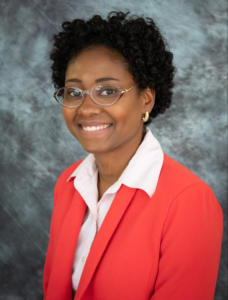One of the Thompson Center’s primary missions is to train the next generation of leaders in the field of autism care. One aspect of this training mission is providing a learning environment for students pursuing their doctoral degrees in psychology. By providing these future child psychologists real-world hands-on experience working with patients, the Thompson Center is helping to increase the number of trained autism experts around the country to help provide more resources for more families.
A typical doctoral trainee will spend one year training at most practicum sites before choosing to move on with their career. On occasion, a doctoral trainee may choose to return for a second year of training. Until this year, the Thompson Center has had one graduate trainee return for a third year. However, this year the Thompson Center has four talented graduate trainees returning for an unprecedented third year. This speaks to both the high-quality training opportunities the Thompson Center provides as well as the dedication of these future psychologists to maximize their training to become the best care providers possible. Over the next few weeks, we will meet these four doctoral interns. This week we’ll learn more about Alexis Rhames.
When did you arrive at the Thompson Center?
I began my time as a practicum student/graduate clinician in Summer 2019.
What is your bio and educational background before the TC?
I hail from Orlando, born and raised! I earned a bachelor’s degree in psychology from the University of South Florida. In addition, I earned a master’s degree in school counseling along with a post-master’s certificate in clinical mental health counseling from Johns Hopkins University. Prior to returning to school to pursue my doctoral studies, I worked as a school-based mental health therapist and managed a grant program aimed at increasing college access and readiness for minoritized high school students in Baltimore and Prince George’s County, Maryland. I am currently a doctoral candidate in the counseling psychology program at Mizzou.
What are your career interests/goals? What do you hope to be doing professionally in 5-10 years?
In 5-10 years, I hope to be practicing as a licensed pediatric psychologist, conducting comprehensive psychological evaluations with children. Additionally, given my passion for social justice and community work, I also aim for my work to expand beyond an individual focus to promote positive change on a systems level, as it relates to healthcare access and special education literacy for families with children with special healthcare needs.
What created the passion within you to pursue a career in this field?
While I have long been passionate about the field of psychology and mental health, and working with children and families, my interest in autism and neurodevelopmental disorders is fairly new. Having a family member with developmental delays inspired me to want to gain insider knowledge about the types of diagnostic and intervention services available to families with children with special healthcare needs. I never would have guessed, however, that on this pursuit to help my own family, I would develop such a passion for helping other families experiencing similar concerns. Additionally, I recognize that through my specialized training and pursuit of a career in this field, I am uniquely positioned to address disparities in healthcare and access for Black families who have children with special healthcare needs.
Why did you decide to return to the Thompson Center for a third year of training?
My decision to return to the Thompson Center for a third year was a no-brainer. The training I have received here has been unmatched, and I genuinely feel valued in my role as a trainee. I have been fortunate to work alongside several of the psychology providers through my practicum student status as well as through the TIPS 4 Kids program, and I learn so much from their leadership. My supervisor, Dr. Jennifer Sykes, encourages me to expand my own leadership capacity by constantly reminding me of my expertise and allowing me to take a lead role on clinic days. The training I am receiving at the Thompson Center is equipping me to achieve my future career goals, and I could not have asked for a better opportunity during my time as a doctoral student.
How do you think your time at the TC will influence the direction of your career?
I am forever grateful to the Thompson Center for providing me with another lens through which to view what was possible for me with my psychology degree. I had never considered a career in assessment and evaluation as my previous clinical experiences consisted of providing individual and family therapy. Through my time at the Thompson Center, I have realized that I really enjoy psychological assessment and evaluation, and more specifically, I enjoy working with families with children with special healthcare needs.
What is the most valuable thing you have learned while working at the TC so far?
One of the most valuable things I have learned while working at the Thompson Center so far is the value of consultation and working within interdisciplinary teams. I admire the psychology providers’ willingness to consult and collaborate with colleagues, including other psychology providers, psychology technicians, SLPs, OTs, and medical providers. This also connects to the other valuable thing I have learned, which is the importance of family-centered care. This involves a respect for families’ socio-cultural backgrounds, collaboration to ensure quality care, and a high level of cultural humility.
What do you hope to learn and/or accomplish in the rest of your time training at the TC?
I hope to continue gaining proficiency in the administration and coding of the Autism Diagnostic Observation Schedule-Second Edition (ADOS-2). Additionally, I hope to continue along in the process of becoming research reliable on the administration and coding of the ADOS-2. Finally, I hope to continue providing families with quality, family-centered care, while increasing my knowledge about autism and other neurodevelopmental disorders.
Any last thoughts about working at the TC?
I love the Thompson Center 🙂


